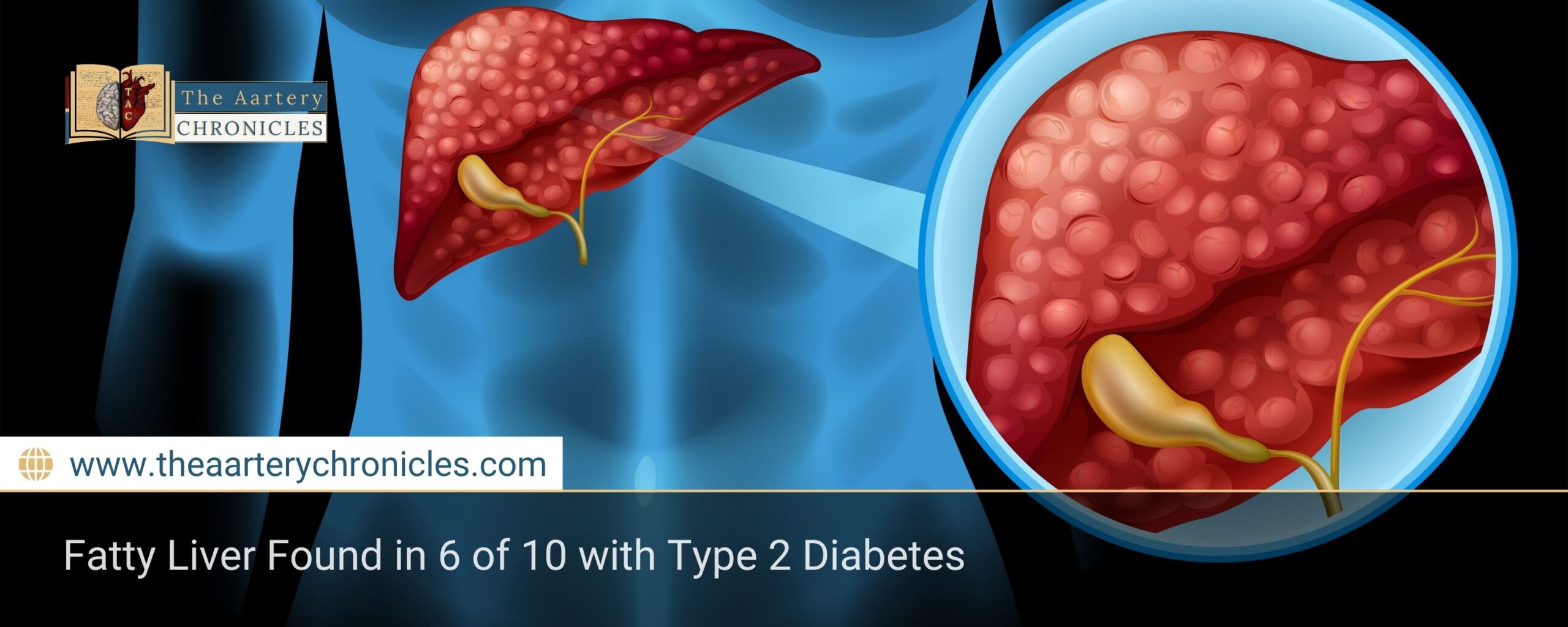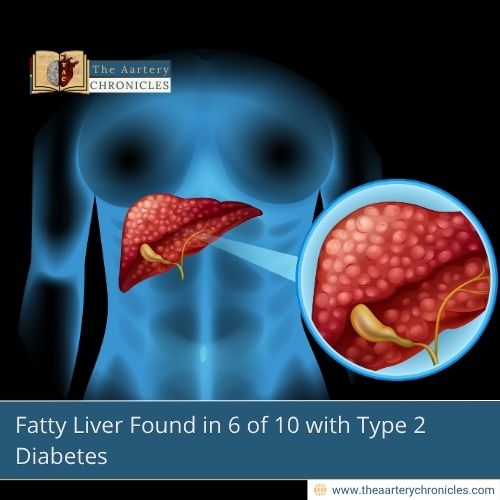

Fatty Liver Found in 6 of 10 with Type 2 Diabetes
Summary: A Swedish study finds that nearly 60% of people with type 2 diabetes also have fatty liver, but only a small fraction develop serious liver damage. The research suggests that those with both type 2 diabetes and obesity are at higher risk of developing severe liver disease. Early screening and lifestyle changes like weight loss can reverse fatty liver, highlighting the importance of targeted preventive care.
Could You Have Fatty Liver and Not Know It?
Six in ten people with type 2 diabetes also have fatty liver disease, but most don’t know it. A new study reveals this hidden risk and why people with both type 2 diabetes and obesity need to be on high alert. Published in the Journal of Internal Medicine, this research sheds light on the real-world prevalence of a condition known as metabolic dysfunction-associated fatty liver disease (MASLD), previously known as NAFLD.
What Is MASLD?
Fat builds up in the liver when the metabolism doesn’t function properly, a condition seen in metabolic syndrome. This cluster of issues, like high blood sugar, obesity, and poor fat metabolism, raises the risk of diseases such as
“Metabolic syndrome leads to fat accumulation and poor blood sugar control, increasing the risk of diseases like type 2 diabetes and cardiovascular disorders,” explains Wile Balkhed, PhD student and resident physician at Linköping University Hospital.
Did you know that one in three adults worldwide may be living with MASLD, and around one in five in Sweden are affected.
How Dangerous Is Fatty Liver?
In most cases, fatty liver remains mild, but it can advance to cirrhosis, where liver tissue becomes scarred and non-functional. Though cirrhosis is rare, it dramatically increases the risk of
- Liver cancer
- Premature death
“It’s crucial to find high-risk individuals early. Our findings might help identify them,” says Dr. Mattias Ekstedt, senior associate professor and gastroenterology consultant.
Findings of the Study
The researchers examined over 300 people with type 2 diabetes during routine check-ups in primary care. The results were eye-opening:
- 59% had MASLD, confirmed through advanced MRI scans.
- 7% showed signs of early liver cirrhosis, based on liver stiffness measured via ultrasound.
Interestingly, this rate is lower than what previous studies, mostly done in specialist clinics, have reported, suggesting that not all diabetics progress to severe liver disease.
Obesity: A Major Red Flag
The study revealed a clear link between obesity and progression to cirrhosis:
“Among those with both obesity and diabetes, 13% showed early liver scarring, compared to just 2% of those with diabetes but no obesity,” says Wile Balkhed.
This group is especially vulnerable and should be prioritized for early screening and preventive care.
Can Fatty Liver Be Reversed?
Yes! One of the most promising findings is that fatty liver is reversible. Losing weight can significantly reduce fat in the liver, potentially preventing long-term complications.
Ongoing Efforts
This study is part of an ongoing effort. Researchers plan a 5-year follow-up to understand who develops severe liver disease and why. It’s a collaboration involving multiple specialties, from MR physics to hepatology, supported by organizations like the Knut and Alice Wallenberg Foundation and the Swedish Society of Medicine.
“We hope this data will improve early detection strategies, especially in primary care settings,” adds Dr. Ekstedt.
Final Takeaway
If you or a loved one has type 2 diabetes, this study shows it’s essential to check for fatty liver disease, especially if obesity is also a concern. Early diagnosis and weight management could prevent irreversible liver damage.
Speak to your doctor about liver screening; your liver might be trying to tell you something before symptoms appear.

Dane
I am an MBBS graduate and a dedicated medical writer with a strong passion for deep research and psychology. I enjoy breaking down complex medical topics into engaging, easy-to-understand content, aiming to educate and inspire readers by exploring the fascinating connection between health, science, and the human mind.








